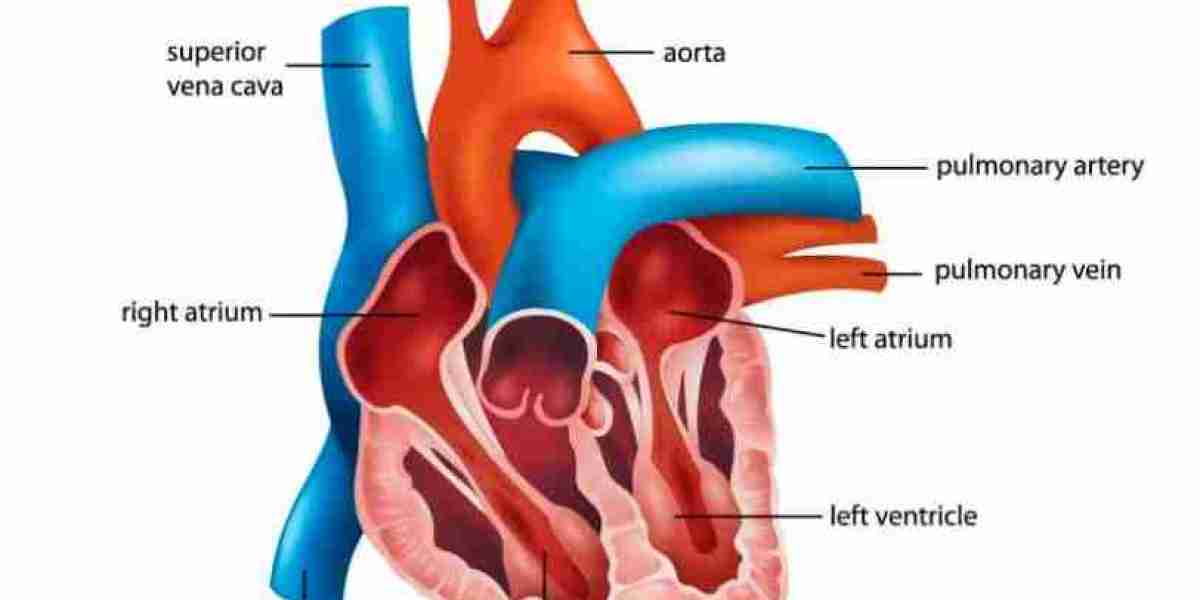Heart health is essential for overall well-being, and one of the most important measures doctors use to assess heart function is the ejection fraction (EF). Understanding the Normal Ejection Fraction by Age helps both patients and doctors evaluate how effectively the heart is pumping blood to the rest of the body.
At Dr. Raghu, we are committed to providing you with clear and accurate information about heart health, guided by Dr. C. Raghu, one of the best cardiologist in Hyderabad.
What is Ejection Fraction?
Ejection Fraction (EF) is a measurement, expressed as a percentage, that indicates how much blood the left ventricle (the heart's main pumping chamber) pumps out with each contraction.
A normal EF means your heart is functioning well. A low EF can suggest heart conditions such as coronary artery disease, heart failure, or cardiomyopathy. Monitoring your ejection fraction is crucial, especially if you have symptoms like fatigue, shortness of breath, or swelling in your legs.
How is Ejection Fraction Measured?
Doctors typically measure EF using imaging tests like:
- Echocardiogram (ultrasound of the heart)
- Cardiac MRI
- CT scans
- Nuclear medicine scans
- Cardiac catheterization
Among these, echocardiography is the most common and non-invasive method used to determine EF.
What is a Normal Ejection Fraction by Age?
While EF is often thought of as a fixed number, it can vary slightly with age due to natural changes in heart function. Here’s a general guide:
Age Group | Normal Ejection Fraction (%) |
Children and Teens | 55% - 70% |
Adults (20-40 years) | 55% - 70% |
Middle-aged Adults (20-40 years) | 50% - 70% |
Seniors (60+ years) | 50% - 65% |
Why Does Ejection Fraction Matter?
Your heart's efficiency directly impacts your health. A normal ejection fraction ensures that your body receives enough oxygenated blood. When the EF falls too low, vital organs like the brain, kidneys, and liver may not function properly.
Low ejection fraction may signal:
- Coronary Artery Disease (CAD)
- Heart valve problems
- Cardiomyopathy
- Hypertension-related heart damage
- Previous heart attacks
This makes regular heart check-ups critical, especially if you have risk factors like diabetes, high cholesterol, or a family history of heart disease.
Signs You May Need to Check Your EF
Some symptoms that suggest a problem with your ejection fraction include:
- Unexplained fatigue
- Swelling in legs or abdomen
- Shortness of breath during activities or while lying down
- Irregular or fast heartbeat
- Chest pain or discomfort
If you experience these symptoms, it is important to seek medical advice from a specialist. Dr. C. Raghu, recognized as the best cardiologist in Hyderabad, offers advanced diagnostics and personalized treatment plans to manage heart conditions effectively.
How Can You Maintain a Healthy Ejection Fraction?
Maintaining a normal EF involves healthy lifestyle choices and regular medical care:
- Eat a heart-healthy diet: Rich in fruits, vegetables, lean proteins, and whole grains.
- Exercise regularly: Aim for at least 150 minutes of moderate activity per week.
- Manage stress: Practice relaxation techniques like yoga, meditation, or deep breathing.
- Control blood pressure and diabetes: Follow your doctor's recommendations carefully.
- Avoid smoking and excessive alcohol: These habits can damage your heart muscles.
- Routine check-ups: Especially if you are at risk for coronary artery disease.
Dr. C. Raghu offers preventive cardiology services to help you maintain a healthy heart at every stage of life.
Conclusion
Understanding the Normal Ejection Fraction by Age is a key step in protecting your heart health. While slight changes in EF are normal with aging, significant decreases can signal serious conditions such as coronary artery disease. Regular monitoring, a heart-healthy lifestyle, and expert medical care can help maintain your heart’s strength.
If you or your loved one is concerned about heart health or needs an expert evaluation, consult Dr. C. Raghu, the best cardiologist in Hyderabad, at drraghu.com. Early diagnosis and personalized care make all the difference in living a long, healthy life.
Follow us on Social Media for latest update









